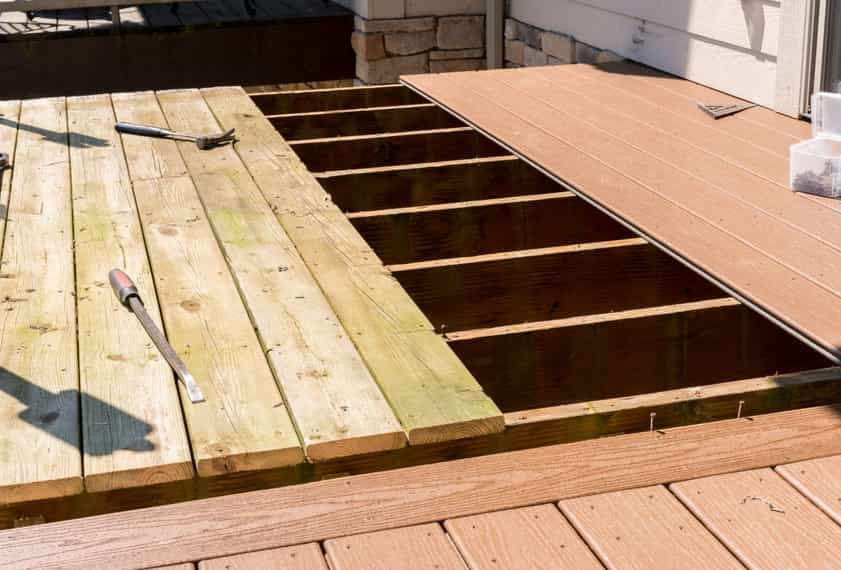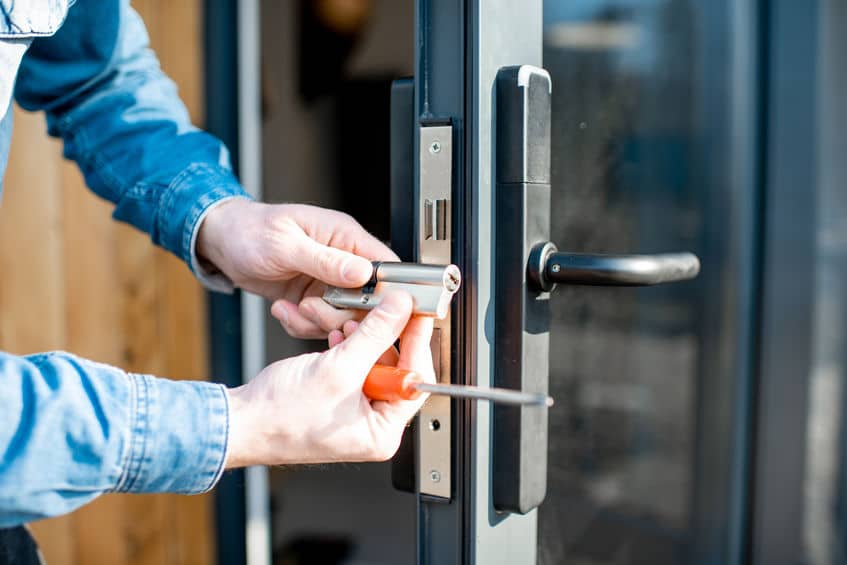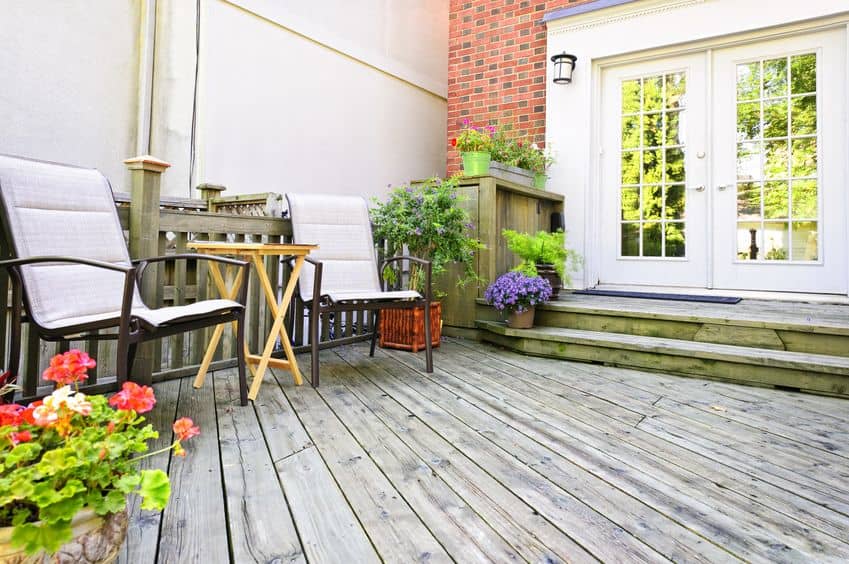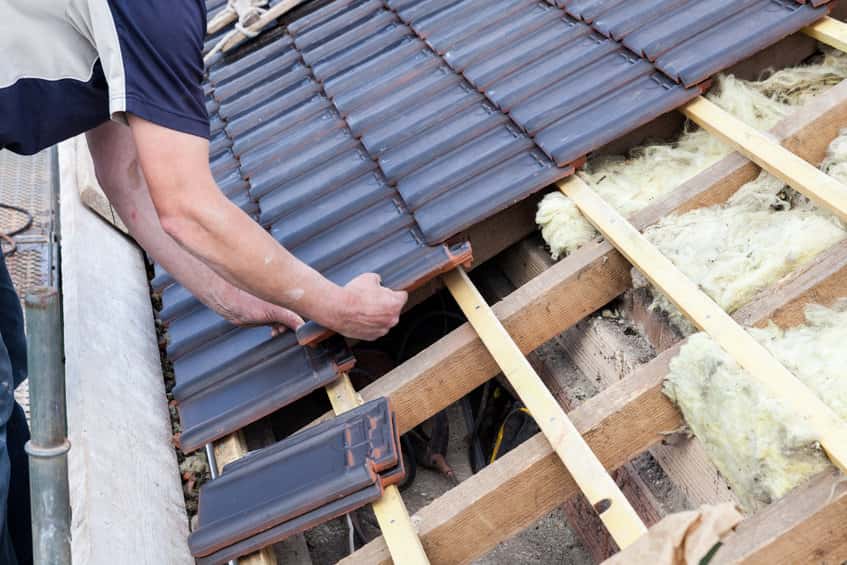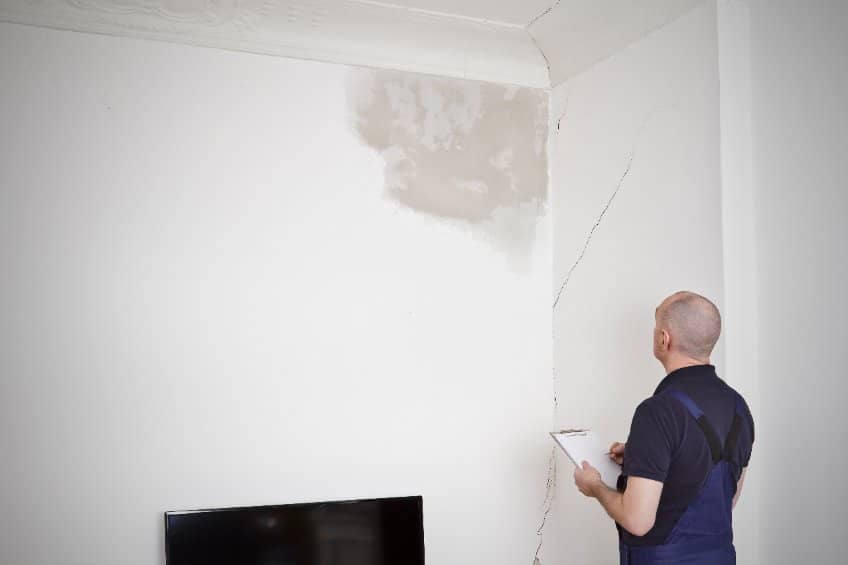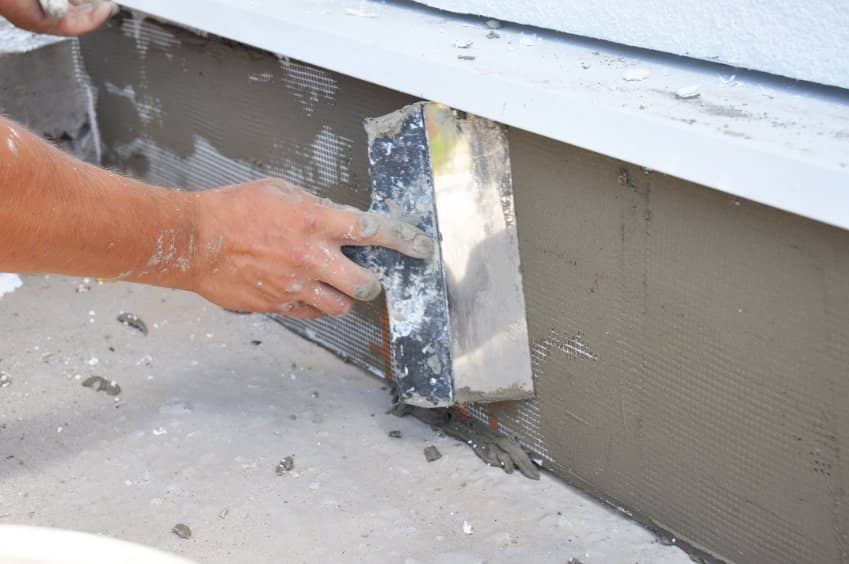It’s easy to put off upgrading or simply checking your deck for safety reasons. However, when it comes to the sturdiness and longevity of your deck, it’s necessary to be informed. Deck care involves your safety, so it’s critical to understand the signs that your deck needs to be replaced.
Let’s explore what signs to look for to replace or repair your deck as a homeowner (rotting wood, etc.). This article is provided by the professionals at Overland Park Deck Builders. We have the top team for deck repair Overland Park KS! Click here for more information.
An unstable railing
A railing is commonly found on decks. These could be attractive, especially if the deck is low to the ground. On the other hand, many deck railings are meant to prevent people from falling off the deck.
Railings that are rickety, unsteady, or otherwise unstable are a safety issue and a strong sign that a new deck is needed. Therefore, it is not a suitable approach to brace shaky railings or hammer in new nails.
The top of a deck can be affected by instability just as much as the support framework. For example, railings that tilt outward or wobble when touched might be dangerous.
Examine the deck for where the rails are attached. If you notice brittle or warped wood, you may need to rebuild the entire deck rather than just the railings.
Joists that are unstable
The joists are the structural parts of your deck that keep it from drooping. Because joists can cause decks or porches to collapse, it’s vital to inspect them regularly.
It’s crucial to inspect your joists for damage, decay, or sagging if they’re made of wood. Touch them and, if possible, get beneath the deck instead of just looking at them as you go about your house.
If the wood is rotting or the material is soft to the touch, it’s also time for a replacement deck. In addition, water damage and termite infestations can cause joists to become unstable.
If your joists show signs of serious damage, contact a decking professional right away, and don’t use your deck until it’s replaced.
Your deck is too old
If you bought your home from prior owners, you might not know how old your deck is. If your deck is too old or no longer meets building code requirements, you should consider replacing it.
Investigate local construction requirements to ensure that your deck does not break any rules. For example, check the age of your deck against these rules.
There are sagging or rotting materials.
Major problems with deck posts are usually a source of anxiety, and they frequently necessitate a complete replacement. Look for structural damage to the posts in addition to erosion surrounding the posts.
If the boards sag as you walk across your deck, it’s time to think about replacing it. But, first, pay attention to the sagging location–it could be caused by water damage to the joists or the floorboards themselves. Inspect the ends of the boards that make up your deck’s floor as well. It’s time to replace your deck if it shows indications of decaying or softening, especially if it’s made of wood. Rotten posts can suddenly snap, putting anybody on or under the deck in danger.
Your posts are not safe.
The strength and longevity of your deck are dependent on the posts that support it. Posts support joists, which in turn support the decking. Your posts must be properly fastened to the joists and flooring. Give your posts a thorough shake to make sure they’re stable. Any swaying indicates a potential safety danger, so contact a decking provider immediately away.
Ledger boards are either ineffective or unstable
The integrity of your deck is dependent on ledger boards. They provide a secure connection between your deck and your home.
Keep an eye on the status of your ledger boards. Are they unsteady, unstable, or otherwise damaged? Ledger boards that are loose or unsecured are a safety issue and can cause your deck to collapse.
You should also ensure that the ledger boards provide a watertight connection to your home. Deck collapses are frequently caused by water damage. Secure flashing on ledger boards is also recommended to keep water out.
Discoloration and stains are present in large areas
While modest fading or stains won’t harm the function of a deck, the widespread discoloration can suggest major underlying problems. Spilled liquids like harsh cleaning chemicals, motor fluids, and cooking grease can damage the finish and material of the deck over time.
Furthermore, older decks are more prone to concealed stability issues. If you don’t know how old your deck is, advanced fading, peeling varnish, and many flaws indicate that it’s time to restore or replace it.
Around the post, there is a lot of erosion
The majority of decks are rooted deep in the ground or sit on concrete supports. The dirt around each post can be worn away by water flowing around the deck base over time.
Progressive erosion can cause the deck to become unstable, such as when the concrete anchor begins to show or the post is mostly exposed. As a result, the deck may wobble, or a snapped post may result from this destabilization.
To rethink how the posts anchor into the earth beneath them, you may need to replace the deck entirely. Around the post, there is a lot of erosion. The majority of decks are rooted deep in the ground or sit on concrete supports. The dirt around each post can be worn away by water flowing around the deck base over time.
You are uncertain
Contact a professional if you’ve thoroughly evaluated your deck and are still unsure whether it’s time to replace it. Even minor issues might cause a deck to collapse or require repair. This features a shaky desk board, splintered railing, and a broken post.
At the absolute least, getting a professional inspection will be worthwhile, so you know when it’s time for a new deck.
Be sure to reach out to the professionals
Contact the professionals if you’ve closely inspected your deck and aren’t sure if it’s time for a replacement. Even a minor problem can result in the deck collapsing or requiring replacement.
At the very least, getting a professional examination will help you determine whether it’s time to replace your deck. According to HomeAdvisor, the average quote to repair a deck ranges between $790 – $3,003.
